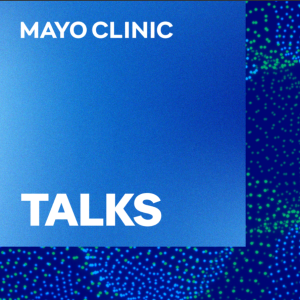
The BSP Podcast turns to a paper from Francesca Brencio, University of Seville, Spain. The recording is taken from our 2019 Annual Conference, ‘The Theory and Practice of Phenomenology’.
ABSTRACT: Phenomenology has recently contributed to illuminate medicine and in setting up different theoretical frameworks. The scope of applying phenomenology to healthcare is not to select symptoms in view of a nosographical diagnosis, rather is to recover the underlying characteristic modification that keeps the manifold of phenomena meaningfully interconnected in the life-world of the person.
This contribution intends to show how the phenomenological method applied to psychiatry implies a new understanding of psychopathological phenomena, conceived as a coherent way of being in the world, and its peculiarities lie in recovering the underlying characteristic modification that keeps the manifold of phenomena meaningfully interconnected in the life-world of the person, in describing and understanding the inner experience of a human being, of its suffering and also the limitation of its freedom. In doing so, what is required is a radical move away from an “objective” body-orientated psychiatry which is grounded on the idea of fixing something broken instead of understanding why existence itself can collapse and loose its meanings. Advances in philosophy and neuroscience have suggested that mental symptoms are not ‘things’, rather they have a wider, deeper, personal, and cultural sense and a fluidity that may not be reduced to the taxonomy used in relation to the organic dimensions of disorders. Patient’s existence (as well as clinicians’ one) is embodied (physically) and embedded (socially and culturally) and psychopathological phenomena are specific ways of this embodiment and embeddedness. This means that we cannot simply classify them as something that happen to an objective body, a purely physiological condition that is explainable entirely in causal or mechanistic terms.
A phenomenologically-informed psychiatry can “fill the gap” between clinical meanings and existential ones and can overcome evidence-based approaches by finding a common language in which words can show relations and not merely signify objects.
BIO: Francesca Brencio (PhD) is Assistant Professor in Philosophy at the Department of Philosophy at the University of Seville, and Member of the Phenomenology and Mental Health Network at the St Catherine’s College (University of Oxford). Her field of research is mainly related to Heidegger Studies, Hermeneutics, Phenomenology, Philosophy of Psychiatry and Philosophy of Religion. She has published in Italian, English, German and Spanish on a wide range of topics, in several collaborative book projects and philosophical and medical journals. She is one of the invited contributors to the The Oxford Handbook of Phenomenological Psychopathology (OUP, 2019).
The ‘British Society for Phenomenology Annual Conference 2019 – the Theory and Practice of Phenomenology’ was held at the International Anthony Burgess Foundation, Manchester, UK, 5 – 7 September, 2019: https://www.britishphenomenology.org.uk/conference/
You can check out our forthcoming events here:
https://www.britishphenomenology.org.uk/events/
The British Society for Phenomenology is a not-for-profit organisation set up with the intention of promoting research and awareness in the field of Phenomenology and other cognate arms of philosophical thought. Currently, the society accomplishes these aims through its journal, events, and podcast. Why not find out more, join the society, and subscribe to our journal the JBSP? https://www.britishphenomenology.org.uk/
More Episodes
Patrick O’Connor – “The Phenomenology of the Unconscious in Cormac McCarthy’s Kekulé Problem”
 2017-08-04
2017-08-04
 219
219
Interview: Patrick O’Connor on Cormac McCarthy and Philosophy
 2017-06-13
2017-06-13
 226
226
Rachel Coventry: Can Poetry break the Internet: A Heideggerian account of Post-Internet Poetry
 2017-05-26
2017-05-26
 159
159
Katrin Joost: Photographic Phenomenology
 2017-05-19
2017-05-19
 217
217
Jonathon Tuckett: The Talos Principle: When does a bot become a person?
 2017-05-12
2017-05-12
 131
131
Miles Kennedy: Where learning takes place: A phenomenological description of Vygotsky’s Zone of Proximal Development
 2017-05-05
2017-05-05
 248
248
Emma Williams: The Ways We Think: Epistemology, Phenomenology and Education
 2017-04-28
2017-04-28
 233
233
Ingrid Wilkinson: Post-stroke changes in the embodied experience of walking
 2017-04-21
2017-04-21
 123
123
Valeria Bizzari: Phenomenology and its usefulness in psychopathology: an “embodied” proposal
 2017-04-14
2017-04-14
 183
183
Philip Tovey: A Remote Outpost Under Siege
 2017-04-07
2017-04-07
 106
106
Bernardo Ainbinder: Heidegger on colour-perception. A case for conceptualism in phenomenology
 2017-01-13
2017-01-13
 167
167
Bence Marosan: Phenomenological biology: A proposal for future phenomenology
 2017-01-06
2017-01-06
 152
152
Ashika L. Singh: Dwelling, Building and Homelessness
 2016-12-30
2016-12-30
 105
105
Emiliano Trizio: Science, Metaphysics and the Crisis of Rationality
 2016-12-09
2016-12-09
 84
84
Eric Chelstrom: Seriality and We-Intentions: A Sartrean Contribution to Collective Intentionality
 2016-12-02
2016-12-02
 103
103
Darian Meacham – How Low Can You Go? BioEnactivism, Phenomenology and Cognitive Biology
 2016-10-10
2016-10-10
 128
128
Felix Ó Murchadha – Speaking after the Phenomenon: Faith and the Passion of Being
 2016-10-10
2016-10-10
 317
317
Get your brand heard on this podcast
Join Podbean Ads Marketplace and connect with engaged listeners.
Advertise Today
Create your
podcast in
minutes
- Full-featured podcast site
- Unlimited storage and bandwidth
- Comprehensive podcast stats
- Distribute to Apple Podcasts, Spotify, and more
- Make money with your podcast
It is Free
You may also like

Mayo Clinic Talks


The Saad Truth with Dr. Saad


Positive Thinking Mind


The Jordan B. Peterson Podcast


The Mel Robbins Podcast


- Privacy Policy
- Cookie Policy
- Terms of Use
- Consent Preferences
- Copyright © 2015-2024 Podbean.com


 iOS
iOS Android
Android